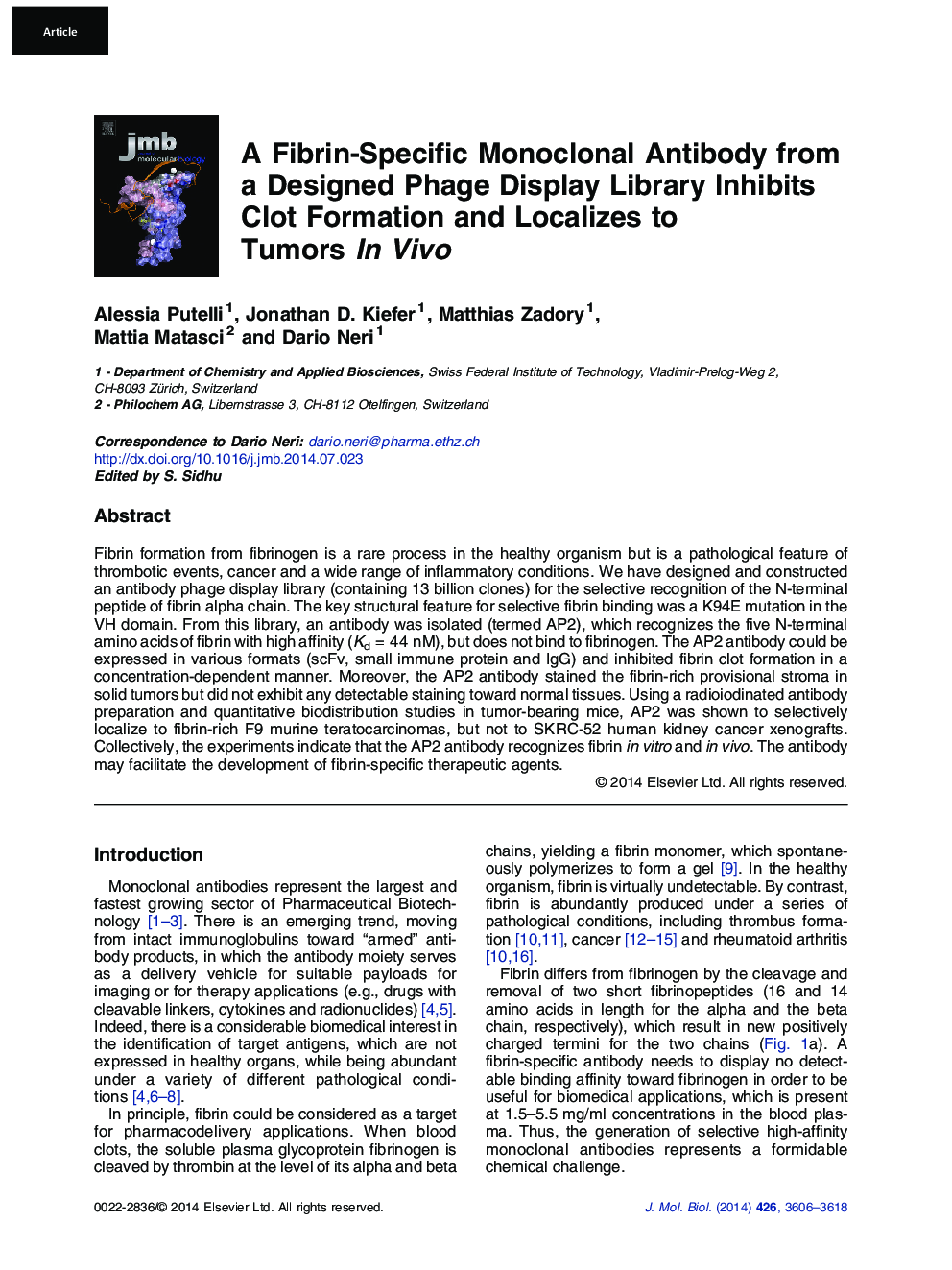| کد مقاله | کد نشریه | سال انتشار | مقاله انگلیسی | نسخه تمام متن |
|---|---|---|---|---|
| 2184428 | 1095843 | 2014 | 13 صفحه PDF | دانلود رایگان |

• Design and construction of a design antibody phage display library.
• The library is designed for selective recognition of the N-terminal fibrin alpha chain.
• The human AP2 antibody recognizes fibrin but not fibrinogen.
• The AP2 antibody inhibits clot formation in a dose-dependent manner.
• The AP2 antibody localizes to F9 tumors in vivo.
Fibrin formation from fibrinogen is a rare process in the healthy organism but is a pathological feature of thrombotic events, cancer and a wide range of inflammatory conditions. We have designed and constructed an antibody phage display library (containing 13 billion clones) for the selective recognition of the N-terminal peptide of fibrin alpha chain. The key structural feature for selective fibrin binding was a K94E mutation in the VH domain. From this library, an antibody was isolated (termed AP2), which recognizes the five N-terminal amino acids of fibrin with high affinity (Kd = 44 nM), but does not bind to fibrinogen. The AP2 antibody could be expressed in various formats (scFv, small immune protein and IgG) and inhibited fibrin clot formation in a concentration-dependent manner. Moreover, the AP2 antibody stained the fibrin-rich provisional stroma in solid tumors but did not exhibit any detectable staining toward normal tissues. Using a radioiodinated antibody preparation and quantitative biodistribution studies in tumor-bearing mice, AP2 was shown to selectively localize to fibrin-rich F9 murine teratocarcinomas, but not to SKRC-52 human kidney cancer xenografts. Collectively, the experiments indicate that the AP2 antibody recognizes fibrin in vitro and in vivo. The antibody may facilitate the development of fibrin-specific therapeutic agents.
Figure optionsDownload high-quality image (222 K)Download as PowerPoint slide
Journal: Journal of Molecular Biology - Volume 426, Issue 21, 23 October 2014, Pages 3606–3618